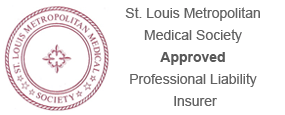You have surely heard it several times: patients who believe they have a good relationship with their physician are considerably less likely to sue in the event of an adverse outcome. But a physician need not spend hours with each patient, have a stunning personality or exhibit world-class bedside manner to be held in high regard by their patients. Regardless of the physician’s personal attributes, effective communication protocols and practices are essential in cultivating a patient’s trust and respect.
We now live in an age where there are “apps” for numerous medical issues and information regarding medical conditions is readily available online whether accurate or not. These often can mislead a patient to think they have a certain ailment or condition. They also create a situation where the patient has self-diagnosed or will question the physician diagnosis, choice of treatment or choice of drug. This can be frustrating for both the patient and the physician and can impact the relationship. How many times have you as a physician suggested a medication or a procedure, only to hear back, “Let me do some research, and I’ll get back to you.” Or alternatively, the patient presents and has diagnosed themselves based upon what they have researched online from blogs, forums and even what they have gleaned from social media. Physicians are still an important source of health care information and relied upon, but patients, now more than ever, gather their own information and reach their own conclusions. Patients are now more likely to have knowledge of their own condition and to seek out information on their own health before ever seeking a physician’s advice. This is the challenge of the internet age and the unlimited access to information, even if some of the information is misleading or flat out untrue. But with this challenge comes greater opportunities to communicate and collaborate with the patient, and to have them more involved in their own health.
The vast majority of patients now want to be a part of the decision-making process, have been taught to ask questions of any decision or process, are concerned about overmedication, prefer contact by way of texting and video connections rather than in person, and are looking for alternative or innovative treatments (most learned of online). Many patients may have nontraditional work/social schedules, may be subject to intermittent unemployment, have a mistrust for “big pharma” and are more concerned about the costs of health care.
Knowing that patients are mindful of costs, mistrust certain industries, can be more connected to their phone and the internet in forming conclusions about their health can be frustrating. The physician must better communicate to the patient that the internet is a vast source of information, but that the internet can provide conflicting opinions, theories, and false information. A physician should open a dialogue to better evaluate the information the patient has gathered. The physician should inquire not only as to the source of the information but the reasons why the source is being relied on. The physician can ask about the parameters of the search used, to include symptoms or drug names, the internet sites that provided the diagnosis to the patient, and the search terms that the patient used. The physician should not be outright dismissive of any research done by the patient, but rather should be prepared to provide additional information or places to research. The physician can explain why there is conflicting information, or why some sources of information are misleading and guide the patient to other sources that are more credible. Taking care not to attack the credibility of any source of information by simply stating that is false, physician does not buy it, or that is “fake news.” Further, the physician should avoid using unnecessary medical terms or jargon that might confuse the patient. The physician should try to communicate in a friendly open-minded way so that the patient feels they can better relate to the physician. Providing additional sources of information and encouraging the patient to research same (homework if you will), enables the patient to be more involved in their care, allows them to use the tools available to them and learn about their own health and treatment. This allows the patient to feel that their health care treatment is more of a collaboration between the physician and patient. It will also build credibility and trust in the patient/physician relationship. This team approach is more acceptable to today’s patients.
Physicians should not discourage today’s patient from researching and using the internet to seek out information on the patient’s healthcare, but should encourage such research, provided that the physician can effectively communicate and guide the patient in the research. Having better educated patients who are actively involved in and participating in the health care process as a collaboration, where the patient feels they are an equal participant or that they have the final word in the process can reduce complaints and claims by that patient in the future.

